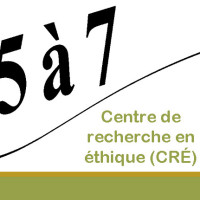Quand :
7 novembre 2016 @ 22:00 – 8 novembre 2016 @ 0:00
2016-11-07T22:00:00+00:00
2016-11-08T00:00:00+00:00
Où :
Salle 223
2910 Boulevard Edouard-Montpetit
Montréal, QC H3T 1J7
Canada
Dans le cadre de ses 5 à 7, le CRÉ est heureux d’accueillir son « duo improbable » composé de deux de nos membres réguliers.
Nous recevons ainsi Katharina Nieswandt (Concordia) et Daniel Weinstock (Droit, McGill). La présentation de Katharine sera intitulée « Property, Exploitation and Control » et celle de Daniel sera intitulée « Political Parties and Compromise ».
Voici les résumés:
Katharina Nieswandt: « Property, Exploitation and Control »
I shall defend three theses: (1) Private property is a relevant topic for political philosophy because it systematically generates exploitation and control. (2) In order to adequately describe how private property does this, a theory of private property needs the category of means of production. (3) Contrary to widespread claims, the link between private property and control was strengthened by the introduction of the joint-stock company, not eliminated.
Along the way, we shall see why Locke’s, Hume’s and Kant’s theories of private property miss precisely that feature of private property that makes it a political topic and how Rudolf Hilferding’s 1910 analysis Finance Capital can help to refute the claim that shareholders exercise almost no control of their very own enterprise.
Daniel Weinstock: « Political Parties and Compromise »
There has been renewed interest in political parties in recent political philosophy, as evidenced by the work of Rosenblum, Muirhead, and Ypi and White. My paper will argue that the moral importance of political parties is a function of two dimensions. First, political parties are the sites and sources of political platforms, which, I argue, should form the basis of accountability of elected representatives. Second, and relatedly, parties are appropriate sites of political compromise which, I have argued elsewhere, is an important source of political decision-making in pluralist societies. These functions can however only be carried out however under what I refer to as « broad » rather than « narrow » political parties. And the nature of political parties is a function not only of citizens’ independent political preferences, but also of the incentives that are generated by different electoral systems. We should therefore in reflecting upon electoral system choice attend to the ways in which different electoral systems tend to produce kinds of political parties that can be more or less likely to present the properties that make them most attractive from the point of democratic ethics.
Chacune des présentations sera suivie par une période discussion. Bienvenue à tou(te)s!




